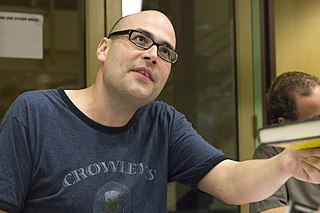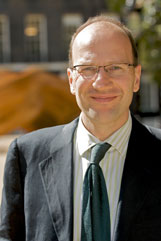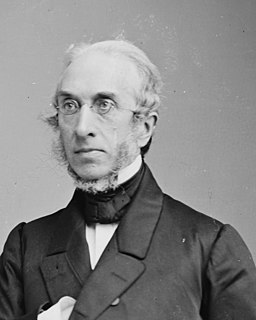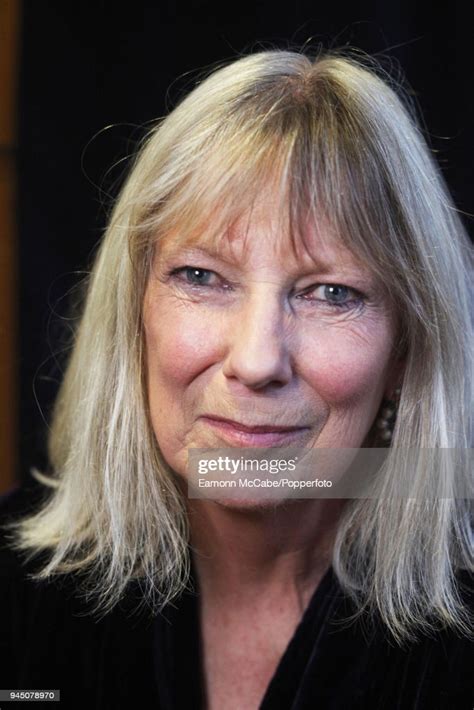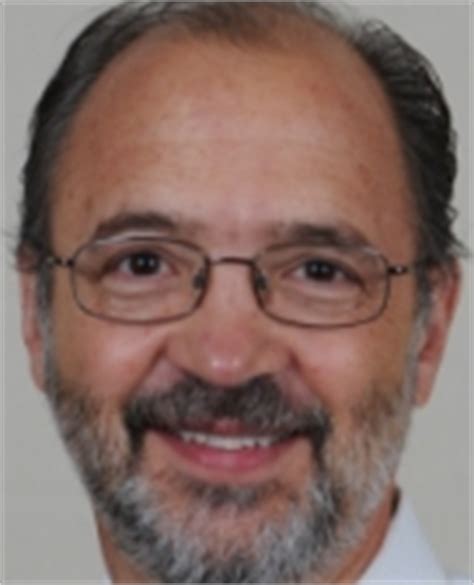Top 1136 Impulse Quotes & Sayings - Page 19
Explore popular Impulse quotes.
Last updated on April 21, 2025.
No one suffers so much as he [the genius] with the people, and, therefore, for the people, with whom he lives. For, in a certain sense, it is certainly only "by suffering" that a man knows. If compassion is not itself clear, abstractly conceivable or visibly symbolic knowledge, it is, at any rate, the strongest impulse for the acquisition of knowledge. It is only by suffering that the genius understands men. And the genius suffers most because he suffers with and in each and all; but he suffers most through his understanding. . . .
I would say if a man is going to write on chemistry, he learns chemistry. The same is true of Christianity. But to speak of the craft itself, I would not know how to advise a man how to write. It is a matter of talent and interest. I believe he must be strongly moved if he is to become a writer. Writing is like a 'lust,' or like 'scratching when you itch.' Writing comes as a result of a very strong impulse, and when it does come, I for one must get it out.
Perhaps the greatest charity comes when we are kind to each other, when we don’t judge or categorize someone else, when we simply give each other the benefit of the doubt or remain quiet. Charity is accepting someone’s differences, weaknesses, and shortcomings; having patience with someone who has let us down; or resisting the impulse to become offended when someone doesn’t handle something the way we might have hoped. Charity is refusing to take advantage of another’s weakness and being willing to forgive someone who has hurt us. Charity is expecting the best of each other
Phunny Business is a breezy, vivid, funny, star-studded and delightful valentine to comedy, entrepreneurship and the All-American impulse to make something out of nothing. The story of comedy club owner/inveterate dreamer Raymond Lambert and his heroic quest to create a safe, productive place for black stand-up comedians to hone their craft and find their voices isn't just a great Chicago story and a great comedy story: it's a flat-out great story, lovingly and engagingly told.
Books should confuse. Literature abhors the typical. Literature flows to the particular, the mundane, the greasiness of paper, the taste of warm beer, the smell of onion or quince. Auden has a line: "Ports have names they call the sea." Just so will literature describe life familiarly, regionally, in terms life is accustomed to use -- high or low matters not. Literature cannot by this impulse betray the grandeur of its subject -- there is only one subject: What it feels like to be alive. Nothing is irrelevant. Nothing is typical.
Then, of course, through the umbilical link we all tumble backwards down the spiralling DNA staircase to one common ancestor in Africa, and before that some bunch of curious monkeys. Down and down we go unto the sea, unto the dust, the single cellular dust. What impulse drove one cell to become two? What yearning pulled the fish on to the land? What caused apes to walk upright? Some invisible magnetic pull. Is there a difference between attraction and intention? Where is evolution taking us?
The funny thing about good people—people like Daneca—is that they really honestly don’t get the impulse toward evil. They have an incredibly hard time reconciling with the idea that a person who makes them smile can still be capable of terrible things. Which is why, although she’s accusing me of being a murderer, she seems more annoyed than actually worried about getting murdered. Daneca seems to persist in a belief that if I would just listen and understand how bad my bad choices are, I’d stop making them.
We know – it has been measured in many experiments – that children with strong impulse control grow to be better adjusted, more dependable, achieve higher grades in school and college and have more success in their careers than others. Success depends on the ability to delay gratification, which is precisely what a consumerist culture undermines. At every stage, the emphasis is on the instant gratification of instinct. In the words of the pop group Queen, “I want it all and I want it now.” A whole culture is being infantilised.
I have often been reminded of the wild duck that came down on migration into a barnyard and liked it so well that he stayed there. In the fall his erstwhile companions passed overhead and his first impulse was to rise and join them, but he had fed too well and could rise no higher than the eaves of the barn. The day came when his old fellow travelers could pass overhead without his even hearing their call. I have seen men and women who once mounted up with wings like eagles but are now content to live in the barnyard of this world.
I believe that it may happen that one will succeed, and one must not begin to despair, even though defeated here and there; and even though one sometimes feels a kind of decay, though things go differently from the expected, it is necessary to take heart again and new courage. For the great things are not done by impulse, but by a series of small things brought together. And great things are not something accidental, but must certainly be willed. What is drawing? How does one learn it? It is working through an invisible iron wall that seems to stand between what one feels and what one can do.
There is an elementary aspiration which undergirds the humane impulse in our history and our culture and binds us together as political activists. This is a simple, irreducible, indisputable aspiration. It is the 'dream of justice' for a beloved community, in which the level of terror in people's lives is sharply reduced or maybe eliminated. It is the belief that extremes and excesses of inequality must be reduced so that each person is free to fully develop his or her full potential. This is why we take precious time out of our lives and give it to politics.
The ignorant man is not free, because what confronts him is an alien world, something outside him and in the offing, on which he depends, without his having made this foreign world for himself and therefore without being at home in it by himself as in something his own. The impulse of curiosity, the pressure for knowledge, from the lowest level up to the highest rung of philosophical insight arises only from the struggle to cancel this situation of unfreedom and to make the world one's own in one's ideas and thought.
Or if the hypothesis were offered us of a world in which Messrs. Fourier's and Bellamy's and Morris's Utopias should all be outdone, and millions kept permanently happy on the one simple condition that a certain lost soul on the far-off edge of things should lead a life of lonely torment, what except a specifical and independent sort of emotion can it be which would make us immediately feel, even though an impulse arose within us to clutch at the happiness so offered, how hideous a thing would be its enjoyment when deliberately accepted as the fruit of such a bargain?
I believe that the creative impulse is natural in all human beings, and that it is particularly powerful in children unless it is suppressed. Consequently, one is behaving normally and instinctively and healthily when one is creating - literature, art, music, or whatever. An excellent cook is also creative! I am disturbed that a natural human inclination [creative work] should, by some Freudian turn of phrase, be considered compulsive - perhaps even pathological. To me this is a complete misreading of the human enterprise. One should also enjoy one's work, and look forward to it daily.
The classic one for me is one of my favorite images - left-versus-right political-spectrum image. I was trying to visualize the concepts on the political spectrum. I'm left-leaning, and I discovered as I was doing it that I had an impulse to make the left-hand side appear better than the right-hand side. That was manifesting in the way I was choosing certain words, framing certain ideas. I shared it with a few people, and they all said, "Oh my God, this is really biased." I hadn't seen it at all.
Trying to tell an authentic, raw and honest story without making it therapy. Separating myself enough to have perspective while putting myself in the emotional hot seat so that I could make this thing real. Asking for help. Delegating responsibility. Standing up for myself. Fighting the impulse to be sweet and likeable 24/7. Being open to all ideas, but staying true to the spine of the story. Knowing when to let go and when to hold on and fight like hell. Getting out of my own way. Shall I go on?
The impulse to confession almost always requires the presence of a fresh ear and a fresh heart; and in our moments of spiritual need, the man to whom we have no tie but our common nature, seems nearer to us than mother, brother, or friend. Our daily familiar life is but a hiding of ourselves from each other behind a screen of trivial words and deeds, and those who sit with us at the same hearth, are often the farthest off from the deep human soul within us, full of unspoken evil and unacted good.
True drama can be conceived only as resulting from the collective impulse of all the arts to communicate in the most immediate way with a collective public... Thus especially the art of tone, developed with such singular diversity in instrumental music, will realize in the collective artwork its richest potential -- will indeed incite the pantomimic art of dancing in turn to wholly new discoveries and inspire the breath of poetry no less to an undreamed-of fullness. For in its isolation music has formed itself an organ capable of the most immeasurable expression - the orchestra.
I support, defend, and admire prostitutes, gay or straight. They do important and necessary work, whether moralists of the Left and Right like it or not. Feminists who think they can abolish the sex trade are in a state of massive delusion. Only a ruthless, fascist regime of vast scale could eradicate the rogue sex impulse that is indistinguishable from the life force. Simply in the Western world, pagan sexuality has survived 2000 years of Judaeo-Christian persecution and is hardly going to be defeated by a few feminists whacking at it with their brooms.
Perhaps there may come into my art also, no less than into my life, a still deeper note, one of greater unity of passion, and directness of impulse. Not width but intensity is the true aim of modern art. We are no longer in art concerned with the type. It is with the exception that we have to do. I cannot put my sufferings into any form they took, I need hardly say. Art only begins where Imitation ends, but something must come into my work, of fuller memory of words perhaps, of richer cadences, of more curious effects, of simpler architectural order, of some aesthetic quality at any rate.
Poetry is perhaps the oldest art form. We can go back to an age-old idea of naming things, the Adamic impulse - to give something a name has always been an immensely powerful thing. To name something is to own it, to capture it. A poem is still a kind of spell, an incantation. Historically, a poem also invoked: it was a blessing, or a curse, or a charm. It had a motile power, was able to summon something into being. A poem is a special kind of speech-act. In a good poem there's the trance-like effect of language in its most concentrated, naked form.
A reader's tastes are peculiar. Choosing books to read is like making your way down a remote and winding path. Your stops on that path are always idiosyncratic. One book leads to another and another the way one thought leads to another and another. My type of reader is the sort who burrows through the stacks in the bookstore or the library (or the Web site — stacks are stacks), yielding to impulse and instinct.
The Holy Spirit gives us joy. And he is joy. Joy is the gift in which all the other gifts are included. It is the expression of happiness, of being in harmony with ourselves, that which can only come from being in harmony with God and with his creation. It belongs to the nature of joy to be radiant; it must communicate itself. The missionary spirit of the Church is none other than the impulse to communicate the joy which has been given.
I wish I could recall with clarity the impulse that compelled me to help bring this camp into being. I'd be pleased if I could announce a motive of lofty purpose. I've been accused of compassion, of altruism, of devotion to Christian, Hebrew, and Muslim ethic, but however desperate I am to claim ownership of a high ideal, I cannot. I wanted, I think, to acknowledge Luck; the chance of it, the benevolence of it in my life, and the brutality of it in the lives of others, made especially savage for children because they may not be allowed the good fortune of a lifetime to correct it.
I wanted to start over completely, to begin again as new people with nothing of the past left over. I wanted to run away from who we had been seen to be, who we had been... It's the first thing I think of when trouble comes - the geographic solution. Change your name, leave town, disappear, make yourself over. What hides behind that impulse is the conviction that the life you have lived, the person you are, is valueless, better off abandoned, that running away is easier than trying to change things, that change itself is not possible.
Our life as consumers seems light years away from that of our grandparents. But you don't change human nature. Optimism, for me, is the belief that we can spread the opportunity for everyone to be fully human. Sustainability, like music, is an impulse to make sense of the world around us. It is core to our humanity. If you only like one composer, or think all the best music has already been written, you have reason for pessimism. If not, it is within us to have good reason for hope
An Irish Airman foresees his Death I Know that I shall meet my fate Somewhere among the clouds above; Those that I fight I do not hate Those that I guard I do not love, My country is Kiltartan Cross, My countrymen Kiltartan’s poor, No likely end could bring them loss Or leave them happier than before. Nor law, nor duty bade me fight, Nor public man, nor cheering crowds, A lonely impulse of delight Drove to this tumult in the clouds; I balanced all, brought all to mind, The years to come seemed waste of breath, A waste of breath the years behind In balance with this life, this death.
The gospel shows us that our spiritual problem lies not only in failing to obey God, but also in relying on our obedience to make us fully acceptable to God, ourselves and others. Every kind of character flaw comes from this natural impulse to be our own saviour through our own performance and achievement. On the one hand, proud and disdainful personalities come from basing your identity on your performance and thinking you are succeeding. But on the other hand, discouraged and self loathing personalities also come from basing your identity on your performance and thinking you are failing.
Where the good begins.- Where the poor power of the eye can no longer see the evil impulse as such because it has become too subtle, man posits the realm of goodness; and the feeling that we have now entered the realm of goodness excites all those impulses which had been threatened and limited by the evil impulses, like the feeling of security, of comfort, of benevolence. Hence, the duller the eye, the more extensive the good. Hence the eternal cheerfulness of the common people and of children. Hence the gloominess and grief - akin to a bad conscience - of the great thinkers.
Why is it we want so badly to memorialize ourselves? Even while we're still alive. We wish to assert our existence, like dogs peeing on fire hydrants. We put on display our framed photographs, our parchment diplomas, our silver-plated cups; we monogram our linen, we carve our names on trees, we scrawl them on washroom walls. It's all the same impulse. What do we hope from it? Applause, envy, respect? Or simply attention, of any kind we can get? At the very least we want a witness. We can't stand the idea of our own voices falling silent finally, like a radio running down.
In what region of the earth ever so remote from us, in what corner of creation ever so far out of the range of our communication, does not some burden lightened, some bond loosened, some yoke lifted, some labor better remunerated, some new hope for despairing hearts, some new light or new liberty for the benighted or the oppressed, bear witness this day, and trace itself, directly or indirectly, back to the impulse given to the world by the successful establishment and operation of free institutions on this American continent?
Wish you could turn off the questions, turn off the voices, turn off all sound. Yearn to close out the ugliness, close out the filthiness, close out all light. Long to cast away yesterday, cast away memory, cast away all jeapordy. Pray you could somehow stop uncertainty, somehow stop the loathing, somehow stop the pain. Act on your impulse, swallow the bottle, cut a little deeper, put the gun to your chest.
It's been nineteen days since I've had a suicidal impulse. One of the things that pulls me back is I think to myself, and as a Muslim, I believe that God created everything and intended everything and here we are in this unbelievably vast universe that's billions of years old. And yet, here I am, an individual human being, in a little corner of the galaxy and planet that is remarkable in some ways and unremarkable in others. All I wish is to say that He meant for every single person who's ever lived to live. I don't necessarily understand why but that was His choice and here I am.
I really love any and all manifestations of art, really respect any kind of artistic impulse, whether it's paintings and sculptures or really good filmmaking or music. I really see the relationships between these different mediums as very fluid. I think you see that nowadays, in this postmodern context, there's much more use of different mediums in contemporary art. For me, if you're a creative person, you can choose to make a painting, you can choose to make a film.
There are two aspects to making movies: One is the feeling of wanting to push myself into stuff that I don't know how to do. Then there's the other impulse to try and earn a living. I want to be careful about not confusing those too much - not that those things can't have a healthy overlap. Plenty of people start out making work that isn't terribly commercial, and then make work that's more commercial but still good. You just want to watch out for that thing where you tell yourself that you're doing your best work when you're not.
...as the slow sea sucked at the shore and then withdrew, leaving the strip of seaweed bare and the shingle churned, the sea birds raced and ran upon the beaches. Then that same impulse to flight seized upon them too. Crying, whistling, calling, they skimmed the placid sea and left the shore. Make haste, make speed, hurry and begone; yet where, and to what purpose? The restless urge of autumn, unsatisfying, sad, had put a spell upon them and they must flock, and wheel, and cry; they must spill themselves of motion before winter came.
It sometimes happened that you might be familiar with a man for several years thinking he was a wild animal, and you would regard him with contempt. And then suddenly a moment would arrive when some uncontrollable impulse would lay his soul bare, and you would behold in it such riches, such sensitivity and warmth, such a vivid awareness of its own suffering and the suffering of others, that the scales would fall from your eyes and at first you would hardly be able to believe what you had seen and heard. The reverse also happens.
When one speaks of humanity, the idea is fundamental that this is something which separates and distinguishes man from nature. In reality, however, there is no such separation: "natural" qualities and those called truly "human" are inseparably grown together. Man, in his highest and noblest capacities, is wholly nature and embodies its uncanny dual character. Those of his abilities which are terrifying and considered inhuman may even be the fertile soil out of which alone all humanity can grow in impulse, deed, and work.
The trouble is that the whole 'accept Christ' attitude is likely to be wrong. It shows Christ applying to us rather than us to him. It makes him stand hat-in-hand awaiting our verdict on him, instead of our kneeling with troubled hearts awaiting his verdict on us. It may even permit us to accept Christ by an impulse of mind or emotions, painlessly, at no loss to our ego and no inconvenience to our usual way of life.
The very reason why we object to state ownership, that it puts a stop to individual initiative and to the healthy development of personal responsibility, is the reason why we object to an unsupervised, unchecked monopolistic control in private hands. We urge control and supervision by the nation as an antidote to the movement for state socialism. Those who advocate total lack of regulation, those who advocate lawlessness in the business world, themselves give the strongest impulse to what I believe would be the deadening movement toward unadulterated state socialism.
There can be no sexual love without lust; but, on the other hand, until the currents of lust in the organism have been irradiatedas to affect other parts of the psychic organism--at the least the affections and the social feelings--it is not yet sexual love. Lust, the specific sexual impulse, is indeed the primary and essential element in this synthesis, for it alone is adequate to the end of reproduction, not only in animals but in men. But it is not until lust is expanded and irradiated that it develops into the exquisite and enthralling flower of love.
Perhaps because the origins of a certain kind of love lie in an impulse to escape ourselves and out weaknesses by an alliance with the beautiful and noble. But if the loved ones love us back, we are forced to return to ourselves, and are hence reminded of the things that had driven us into love in the first place. Perhaps it was not love we wanted after all, perhaps it was simply someone in whom to believe, but how can we continue to believe the the beloved now that they believe in us?
People with intelligence must use their intelligence, people with eyes must use their eyes, people with the capacity to love have the impulse to love and the need to love in order to feel healthy. Capacities clamor to be used, and cease their clamor only when they are used sufficiently. That is to say, capacities are needs, and therefore are intrinsic values as well.
The most dangerous thing you can do is to take any one impulse of your own nature and set it up as the thing you ought to follow at all costs. There is not one of them which will not make us into devils if we set it up as an absolute guide. You might think love of humanity in general was safe, but it is not. If you leave out justice you will find yourself breaking agreements and faking evidence in trials "for the sake of humanity", and become in the end a cruel and treacherous man.
I think there's a very fundamental urge to create a safe space, a home; most animals have that impulse, and humans certainly do - with some exceptions, like nomadic people who perhaps don't feel the need to settle in quite that way. But most of us do want to have space, somewhere we feel secure and where we repeatedly return. Somewhere we can sleep without fear. And there's nothing wrong with that desire. It's completely understandable. It only becomes ugly when that creation of a safe space involves making an enclosure from which other people are kept out.
One of the fundamental demonstrations of our natural instinct to Bond with each other is a will to give. Rather than domination, our most basic urge is to reach out to another human being, even at a cost to ourselves. Giving to others-the urge to empathize, to be compassionate, and to help others altruistically-is not the exception to the rule, but our natural state of being. Our impulse to connect with each other has developed an automatic desire to do for others, even at personal cost. Altruism comes naturally to us. It is selfishness that is culturally conditioned and a sign of pathology.
Thought reflexes get conditioned very strongly, and they are very hard to change. And the also interfere. A reflex may connect to the endorphins and produce an impulse to hold that whole pattern forther. In other words, it produces a defensive reflex. Not merely is it stuck because it's chemically so well built up, but also there is a defensive reflex which defends against evidence which might weaken it. Thus it all happens, one reflex after another after another. It's just a vast system of reflexes. And they form a 'structure' as they get more rigid.
...the first thing you do at the end is reflect on the beginning. Maybe it's some form of reverse closure, or just the basic human impulse toward sentimentality, or masochism, but as you stand there shell-shocked in the charred ruins of your life, your mind will invariably go back to the time when it all started. And even if you didn't fall in love in the eighties, in your mind it will fee like the eighties, all innocent and airbrushed, with bright colors and shoulder pads and Pat Benatar or The Cure on the soundtrack.
If you know what it is before you even start, it's not as interesting. Central to being an actor is pretending, and the adventure of it all. That's why you become a junkie for different kinds of situations. I try to attach myself to people who really inspire me, and directors who are really passionate. That way, I can give myself more fully and trust the impulse behind why the film is being made, and I can be a little more irresponsible in finding out what the character is. I have to worry less about what the character means if I trust the director.
When discouraged some people will give up, give in or give out far too early. They blame their problems on difficult situations, unreasonable people or their own inabilities. When discouraged other people will push back that first impulse to quit, push down their initial fear, push through feelings of helplessness and push ahead. They're less likely to find something to blame and more likely to find a way through.
One of the few things I know about writing is this: spend it all, shoot it, play it, lose it, all, right away, every time. Do not hoard what seems good for a later place in the book, or for another book; give it, give it all, give it now. . . . Something more will arise for later, something better. These things fill from behind, from beneath, like well water. Similarly, the impulse to keep to yourself what you have learned is not only shameful, it is destructive. Anything you do not give freely and abundantly becomes lost to you. You open your safe and find ashes.
Joan was nothing more than a friend. He was not in love with her. One does not fall in love with a girl whom one has met only three times. One is attracted, yes; but one does not fall in love. A moment's reflection enabled him to diagnose his sensations correctly. This odd impulse to leap across the compartment and kiss Joan was not love. It was merely the natural desire of a good-hearted young man to be decently chummy with his species.
Most people have learned to live in the moment. The argument goes that if the past has uncertain effect on the present, there is no need to dwell on the past. And if the present has little effect on the future, present actions need not be weighed for their consequence. Rather, each act is an island in time, to be judged on its own. ... It is a world of impulse. It is a world of sincerity. It is a world in which every word spoken speaks just to that moment, every glance given has only one meaning.
Mr. Donald Trump talking about the US Mexican border, he's not doing anything new or unusual. It's something that's very much in the air and perhaps always has been. The Great Wall of China has been there for a great long time. People have always tried to keep foreigners out. There is a very natural desire, once you've got somewhere cozy, to keep it to yourself, and equally there's a very strong impulse for those who are not at such a safe and prosperous place to try and get in. It's been creating conflict throughout human history.
One way to determine if a view is inadequate is to check its consequences in particular cases, sometimes extreme ones, but if someone always decided what the result should be in any case by applying the given view itself, this would preclude discovering it did not correctly fit the case. Readers who hold they would plug in to the machine should notice whether their first impulse was not to do so, followed later by the thought that since only experiences could matter, the machine would be all right after all.
Nothing in oratory is more important than to win for the orator the favour of his hearer, and to have the latter so affected as to be swayed by something resembling an impulse of the spirit impetu quodam animi or emotion perturbatione, rather than by judgment or deliberation. For men decide far more problems by hate, or love, or lust, or rage, or sorrow, or joy, or hope, or fear, or illusion, or some other inward emotion aliqua permotione mentis, than by reality or authority, or any legal standard, or judicial precedent or statute.



